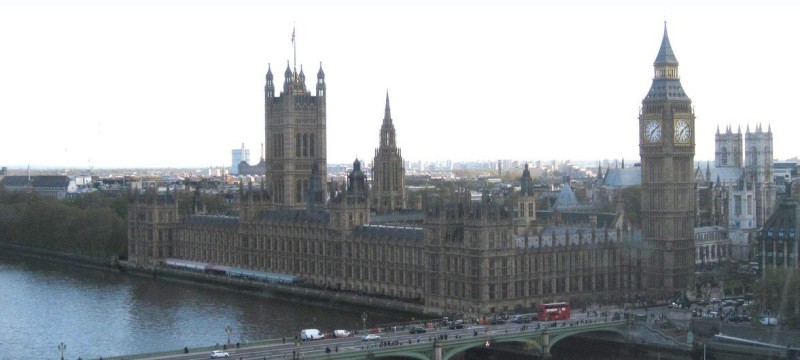
UN News/Omar Musni The Palace of Westminster and central London, as seen from across the River Thames.
The credibility of victims of trafficking and contemporary forms of slavery – including migrants and nationals – is now under attack in the UK, the Human Rights Council-appointed experts warned, in a statement published on Monday.
Tweet URL
‘Unsubstantiated claims’
“We are alarmed by the rise in unsubstantiated claims by public officials and Government departments regarding persons seeking protection under the Modern Slavery Act and the National Referral Mechanism in the past days and weeks,” they said.
According to news reports, civil society activists in the anti-slavery field have accused the UK Government of rolling back support, reclassifying modern slavery as an immigration issue, and calling into question the validity of trafficking claims.
Government officials have “voiced claims in the media”, a press release issued on behalf of the experts said, while Prime Minister Rishi Sunak is reported having delivered an oral statement to Parliament, on 13 December, asserting that “the threshold for someone to be considered a modern slave will be significantly raised”.
‘Misleading statements’
“Misleading statements that exaggerate the level of fraud and abuse in the system to protect victims of trafficking and slavery, suggest that survivors of these practices are migrants in an irregular situation or criminals rather than vulnerable victims of gross human rights violations,” the UN experts said, “and that their legal representatives are cynical opportunists rather than human rights defenders.
“There is little evidence to support these claims and generalising them is dangerous and regressive,” the experts added.
They noted that requests for corroborating evidence by civil society have gone ignored on multiple occasions by the officials in question.
The independent rights experts warned that this kind of rhetoric by politicians or officials not only puts victims of trafficking and contemporary forms of slavery at risk, “but may also embolden human traffickers.”
“This has a chilling effect on those willing to come forward as victims and those willing to provide legal representation to victims, impeding efforts to identify and protect victims and persons at risk of trafficking and hold perpetrators accountable,” the experts said.
Strengthen protection
They urged public officials to refrain from inflammatory and spurious rhetoric that delegitimises survivors of slavery and human trafficking and their legal representatives. “Focus instead on strengthening measures to protect these vulnerable populations,” they added.
The independent experts called on the Government to immediately appoint a new Independent Anti-Slavery Commissioner, as a first step.
The post has been vacant since April this year, despite being mandated under legislation from 2015, under the Modern Slavery Act.
The Government was also urged to address human rights concerns experts have previously identified regarding risks of trafficking and contemporary forms of slavery faced by workers in the UK, including migrants and asylum-seekers.
The experts said they had been in contact with the UK Government and “regret the lack of response to their last communication on the related issue”, said the press release.
Special Rapporteurs are mandated to monitor and report on specific country situations or thematic issues. They are independent of any government or organization, operate in their individual capacity, and are neither UN staff nor are they paid for their work.

